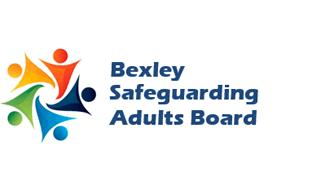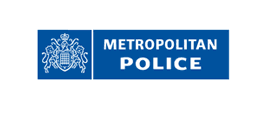 Professionals & Workforce
Professionals & Workforce
The Bexley Safeguarding Adults Board wants to ensure the workforce has easy access to information to support adult with care and support needs from harm or neglect.
What is an adult at risk?
 An adult at risk is a person who has needs for care and support (whether or not the local authority is meeting any of those needs as it could be done privately by family/friends) and;
An adult at risk is a person who has needs for care and support (whether or not the local authority is meeting any of those needs as it could be done privately by family/friends) and;
- is experiencing, or at risk of abuse and neglect; and
- as a result of those care and support needs is unable to protect themselves from either the risk of, abuse and neglect.
Some adults may be more at risk of abuse than others. The following things could increase the risk of abuse:
- Physical disability
- Learning disability
- Mental Health concerns
- Sensory loss
- Old age and frailty
- Dementia / Confusion or Brain Injury
Also people who depend on others to care for them may be unable to stop someone else from harming or taking advantage of them.
Abuse can happen in many different places and anyone could be an abuser; it is often someone who is known and trusted.
Signs and Indicators of abuse:
You may become concerned that someone is being abused or is at risk of harm in a number of ways:
- the person may tell you
- the person may say something that concerns you
- you may see something - an incident, an injury or some other sign
What might cause a concern?
 You might see and/or hear something happen, or there might be physical signs -
You might see and/or hear something happen, or there might be physical signs -
- someone being bullied or intimidated
- someone being made to feel frightened or unhappy
- someone in a situation of unnecessary risk
There might be physical signs or unexplained or unusual injuries, such as bruises, slap marks, pinches or burns.
There may be other signs, such as inappropriate or dirty clothes, no food/drink available for the person, or a shortage of money.
The person may say things or behave in away that worries - for example, appearing frightened or anxious without identifiable causes or experiencing sleeping problems.
The behaviour of a colleague to the person may appear dismissive or intolerant, or they might overstep their professional boundaries with clients.
You may suspect abuse because:

- You have general concerns about someone's well-being
- You see or hear something which could be abuse
- Someone tells you something has happened or is happening to them, which could be abuse.
Safeguarding is everybody's business. It is your role to pass on any concerns you may have.
You must:
- If there is immediate danger - Phone for emergency services, 999 or 101
- Listen carefully to what you are being told and reassure the person you are taking what they say seriously
- Tell you manager and/or safeguarding lead what has happened
You must not:
- Touch or clear away any evidence
- Agree to keep it a secret. Explain to them you will have to pass the information on.
- Interrupt the person or ask any leading questions
- Contact the alleged abuser
- Talk to other staff members or service users about the information shared with you
If you witness abuse or someone tells you about it, you must:
- Write an account of what you have seen or heard as soon as possible. Make sure you include the time and date.
- Make sure the information is factual and accurate/
- Note down what the person has said, using their own words.
- Describe the circumstances sand identify anyone else who was there at the time.
- Use a body map to record any injuries.
- Sign and date your report, nothing the time and location.
- For more information - see Bexley Safeguarding Adults Board 'Keeping Adults Safe in Bexley' (Trifold Leaflet)
If you are worried about an adult at risk, please don't stay silent.
Please don't stay silent about any concerns you have about a potentially vulnerable adult.
Contact us today for help and advice -
If you need to report an Adult Safeguarding Concern:
Ring Bexley's point of contact: 0203 045 5159
Email: bexleycare.spc@nhs.net
Where trained professionals will assist you with your concern.

Questions you may want to ask yourself:
- If nothing changes, or if I do nothing, in what way is the person likely to be harmed?
- What is it I am most worried about?
- Have I asked consent from the person to share this information? If not, why not?
- What is prompting me to ask for help or support now? Has the problem or issue worsened recently?
- What needs or concerns have been identified?
- What has already been done to address the needs or concerns?
- What positive resources and abilities does the person and 'family' currently have?
- What do we already know about the person's issues and capacity?






